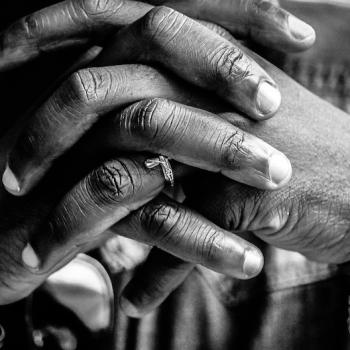My generation, Gen Z, takes pride in their accomplishments of discovering different ways to explore gender and gender roles. Growing up, I could watch my peers discover different aspects of themselves. However, I often needed clarification on the Biblical principles I was learning about not matching up with their discoveries. I had heard of Biblical womanhood but struggled to find examples of that in school.
It was not until college that I truly realized that I wanted to step into the design that God has given us for Biblical womanhood. The depth of God’s love in these roles is clearly evident when you look at what God asks of us.
What is Biblical womanhood?
Before we begin…
The concept of Biblical womanhood can occasionally create division among Christians due to its reliance on a complementarian perspective for defining womanhood. For example, John Piper’s explanation of Biblical Womanhood includes a very obvious complementarian aspect. But Womanhood does not mean that you must be complementarian or egalitarian. Rather, that viewpoint may come from stepping into the identity God has called you towards.
For those who are unsure what I am speaking about, complementarianism is the viewpoint that men and women hold equal value but different roles and responsibilities within marriage, family life, and religious leadership.
Egalitarianism is similar in the viewpoint that men and women hold equal value, but differs in the aspect that men and women do not have specific roles or responsibilities.
In this article, I want to ensure you that God’s view of women does not change. Because of the Imago Dei, women are seen as valuable to God. Your viewpoint on if men and women should take a complementarian or egalitarian stance does not change a person’s value in the eyes of Christ.
In seeking God’s true intention for relationships, debating which perspective is “more correct” often leads to division, bitterness, and pride. True understanding will come when we embrace His glory in heaven.
Biblical Womanhood
At the center of any gender role in scripture, the definition must start with that we are all image-bearers. Therefore, when explaining Biblical Womanhood, I must also begin with my own definition of an image-bearer. This concept begins in Genesis 1: 26-27 when God creates man and woman in His image.
What I want to refrain from doing is stating that women who are truly following Christ will be submissive and emulate Proverbs 31 to perfection. This is simply untrue. Women following Christ prioritize the entire scripture as their guide, not just verses specific to women and wives.
While gender roles exist and women and men must take steps towards fulfilling those, that does not mean that there are only certain parts of scripture that pertain to each role. Each role that God calls us into requires us to have a knowledge of the entire Bible: not just a selection of passages that people take out of context.
Biblical womanhood is following the callings that God has placed on our life–which may look different for each person.
Scripture’s Examples
Scripture gives several examples of women following after God while doing things that are typically against gender roles. For example, Deborah and Jael both fought for Israel in the Book of Judges (Judges 4-5).
Deborah and Jael courageously challenged the societal expectations. They assumed roles of military significance which were usually reserved for men during this era. Deborah held a leadership position as a Judge among the Israelites. Jael’s actions secured peace for a remarkable span of 40 years by driving a tent peg through an enemy’s head.
In these instances, these women undertook responsibilities that align with what men traditionally fulfilled in ancient times due to the military context. Their actions were grounded in their commitment to serving the Lord and defying conventional gender norms.
Additionally, Proverbs 31 portrays a woman engaged in various activities. We see her crafting and selling belts, managing her household, engaging in real estate, and nurturing a deep trust with her husband. The Proverbs 31 woman can embrace these roles and also be cherished by God. We as women can assume that it is honorable to take on such roles as the Proverbs 31 woman did.
Biblical womanhood is not:
- Being a baby factory. Children are a blessing. That is a fact. However, both men and women are necessary to raise children.
- Submitting to all men. Submission is required of an individual to God, and a wife to her husband. Not to all men in this lifetime.
- A quiet spirit. Women are called to cultivate quiet spirits, but that doesn’t imply passive acceptance of what the world presents to us. A quiet spirit is precious to God not as a female quality, but as a character quality. Quiet spirits are evidence that a soul is at rest– not idealizing a quiet personality.
Honoring God through our Womanhood
Honoring God through our Womanhood simply means that we acknowledge the Imago Dei resides within everyone and follow the convictions that Christ has placed on our hearts. This does not mean every woman must be a homemaker. It means that God has placed a calling on your life and you must follow it.
Embracing God’s design in Womanhood does not mean we must follow a specific set or rules, but rather a dynamic calling that takes into account the entirety of scripture and the unique paths each individual is led to follow.
Together, as we stand as image-bearers. In this unity, we can break free from the limitations imposed by culture. As we do, we embark on a journey of discovering the true depth of our identity as daughters of the Most High. Hand in hand, we walk this path, embodying the love of Christ: the giver of freedom and the source of all that is good.















